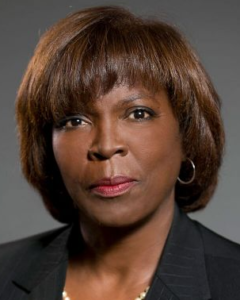Editor's Note: Agri-Pulse and The Chicago Council on Global Affairs are teaming up to host a monthly column to explore how the U.S. agriculture and food sector can maintain its competitive edge and advance food security in an increasingly integrated and dynamic world.
Ending hunger and chronic malnutrition remains within our grasp. However, we must recognize and address, as the UN recently reported, there is a global reversal of a decades long downward trend in the number of hungry people. In 2016, the number of hungry people increased to 815 million – a rise of 38 million from 2015. These seemingly daunting numbers represent numerous complex yet surmountable challenges, not the least of which is increased conflict. Achieving a hunger free world begins with peace and stability.
The ingredients required for ending hunger also include-sustainable and durable food systems (from fork to farm), elimination of malnutrition (particularly stunting), elimination of food waste, and universal access to nutritious food all year long-all quite feasible. What we now require is indefatigable world-wide public devotion directed by unrelenting global leadership.
This week one such leader fittingly receives the highest honor in food security, the World Food Prize- African Development Bank President Akinwumi Adesina. As the son and grandson of farmers, an agriculture economist by training, with significant government and institutional agriculture leadership experience, Akin has long recognized and supported sustainable agriculture and nutrition as key ingredients in the recipe for developing strong healthy economies. Conversely, he understands the linkages between hunger and poverty to extremism and conflict. His dedication to solving these challenges includes supporting partnerships with the private sector.
Akin recognizes and expounds about the sub-Saharan African agribusiness market value projected to exceed 1 trillion U.S. dollars by 2030. Further, he understands and often discusses the global economic impact resulting from African household expenditures rising to $1.4 trillion over the next three years.
Seizing these trillion-dollar opportunities requires partnerships. Partnerships supporting collective action across the entire agriculture value chain. Partnerships which will deliver the requisite, scalable, sustainable and durable farm to fork improvements.
This partnership of actors must include governments, donors, civil society and NGOs, the multilateral institutions including the banks and the UN, and the private sector.
Focusing on private sector means the community must become comfortable with the fact that agriculture development is neither charity nor philanthropy. We must not romanticize the notion of a small-holder farmer.
We will not achieve our ambitious goal of zero hunger if business partners at every level don’t make money…including smallholder farmers. Yes, the African smallholder farmer must feed her family, but she also wants and needs to generate income. We must expand on farm and off farm jobs and opportunity by making the business of agriculture, at every level, lucrative. Yes, American farmers and U.S. agribusiness understand an African continent capable of feeding itself is important to continued growth of U.S. agribusiness.
The opportunity for business development exists along the entire agriculture value chain from seeds and fertilizers, warehousing, distribution, banking, insurance, milling, and value-added processing. New innovative, disruptive businesses creating leap-frog opportunities to overcome seemingly intractable constraints to agriculture development are on the horizon. New advances which do not necessarily rely on government resources, including data management, new drone planting and monitoring tools, and reasonably-priced smart irrigation schemes will provide more opportunities for agribusiness and other entrepreneurs to create jobs and make more money.
The recipe for ending hunger also requires national governments willing to implement and adhere to policies that create an enabling environment which will allow businesses across the agricultural value chain to blossom and grow. Government policies must transparently support predictive, open markets. Businesses of every kind require predictability, which only an adequate government policy and legally enforced framework will deliver. Admittedly, in some countries, this may seem a tall order…yet in many developing countries it is not only achievable, but already happening.
Financial inclusion is another essential ingredient. We must scale up the availability of financing for both on-farm and off-farm agriculture activities. A fairly recent MIT and International Monetary Fund study found that the elimination of blockages to financial inclusion has significant impact on GDP growth and productivity. Simply put, financial inclusion serves as the bridge between economic growth opportunities and achieving economic growth outcomes for developing countries.
Financial inclusion, as with every new tool, must include capacity building. My mother always said “we do better when we know better.” Giving a farmer improved seed or fertilizer without adequate training will not produce the results the farmer expects. Making financial assistance available without training on financial management is too often simply a default waiting to happen.
All the ingredients in this recipe for creating zero hunger require blending, with patience and long-term commitment. We must also work with passion derived from a sense of urgency and purpose. Creating jobs and opportunity in agriculture and producing the sweet taste of a world without hunger requires moving beyond talking about what needs to get done and moving towards performing the work, stirring together all the ingredients that will make it happen.
About the Author: Ambassador Ertharin Cousin is currently the Payne Distinguished Lecturer at Stanford's Spogli Institute and a Visiting Fellow in their Center on Food Security. She also serves as Distinguished Fellow at the Chicago Council on Global Affairs.
She formerly served as Executive Director of the World Food Program and as the US Representative to UN Agencies for Food and Agriculture.
#30


